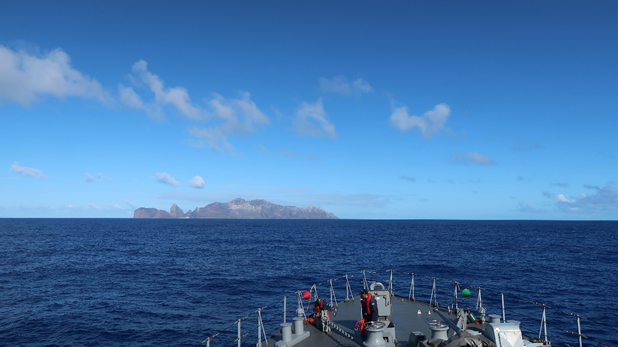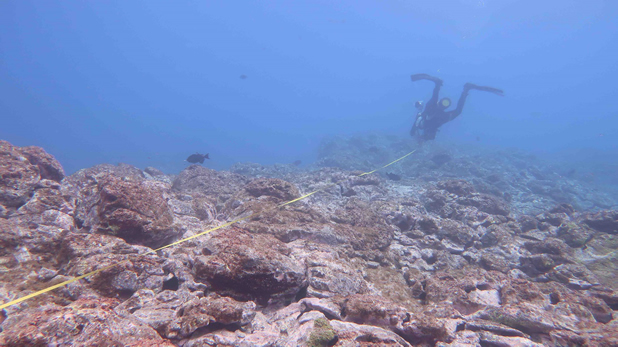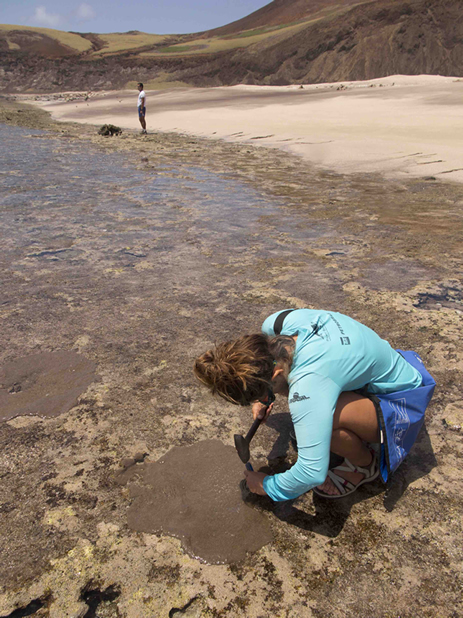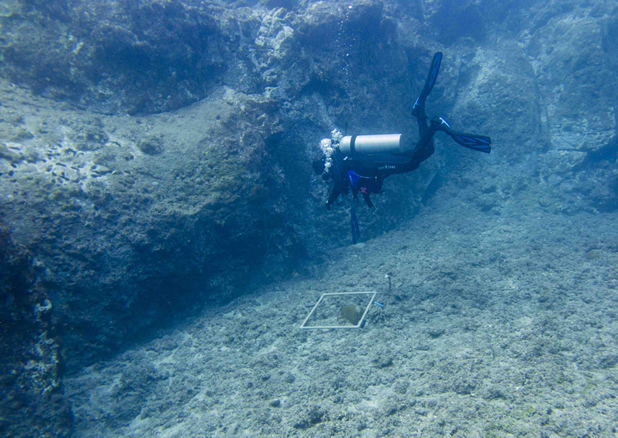|
4th PELD ILOC expedition to Trindade Island
After a 64-day expedition on the remote Trindade Island (1100 km east of Vitória / ES), the members of LECAR,
Cesar Cordeiro and Linda Eggertsen returned to the continent accompanied by two researchers from UFSC (Luisa
Fagundes and Thais Macedo). The expedition was part of the PELD ILOC, a project that carries out the ecological
monitoring of the Brazilian oceanic islands. Among the activities developed during the expedition, the researchers
monitored several ecological from marine ecosystem, such as: reef fish assemblage, benthic cover composition,
health status of Montastrea cavernosa coral colonies, population structure of the Aratu crab (Grapsus grapsus), and
the structure of the sea urchin assembly. In addition, other activities of researchers associated with the project were
carried out, including the collection of organisms and macroalgae that will be studied for bioprospection of
compounds of medical and pharmaceutical importance. Despite some difficulties faced by the team - rough seas
and a few technical problems - the expedition was concluded with a very positive balance, counting with the support
of the Brazilian Navy. Also, the island was generous, and besides the uniqueness of the landscape, full of color
contrasts due to the beautifully complex geology, the team had the privilege to be there during the whale season,
and all diving activities were accompanied by choirs of humpback whales - however, none was spotted while diving.
Maybe next year!
Expedição #4 do PELD ILOC para a Ilha da Trindade
Após uma expedição de 64 dias na remota Ilha da Trindade (1100 km a leste de Vitória/ES), os membros do
LECAR, Cesar Cordeiro e Linda Eggertsen, juntamente com duas pesquisadoras da UFSC (Luisa Fagundes e
Thais Macedo) retornaram ao continente. A expedição realizada faz parte do Projeto PELD ILOC que realiza o
monitoramento ecológico das ilhas oceânicas brasileiras. Dentre as atividades realizadas, os pesquisadores
realizaram o monitoramento de diversos componentes ecológicos da ilha, tais como: a assembleia de peixes
recifais, a composição da cobertura bentônica, o estado de saúde de colônias de coral Montastrea cavernosa,
estrutura populacional do caranguejo aratu (Grapsus grapsus), e a estrutura da assembleia de ouriços-do-mar.
Adicionalmente, foram executadas outras atividades de pesquisadores associados ao projeto incluindo a coleta
de organismos e macroalgas que serão utilizadas nas bioprospecção de compostos de importância médica e
farmacêutica. Apesar de algumas dificuldades enfrentadas pela equipe devido às condições de mar nem sempre
favoráveis e alguns problemas técnicos, a expedição foi concluída com saldo muito positivo, contando com o apoio
da Marinha do Brasil nas atividades desenvolvidas na ilha e no translado dos pesquisadores. Mas a ilha também
foi generosa e, além da singularidade da paisagem, cheia de contrastes de cores devido à geologia belamente
complexa, a equipe teve o privilégio de estar lá durante a temporada de baleias e todas as atividades de mergulho
foram acompanhadas por coros de baleias jubarte - no entanto, nenhuma foi vista durante os mergulhos. Talvez
no próximo ano!

Trindade Island

Reef fish visual census

Benthic organisms collection

Taking photo quadrats – benthic communities

PELD Team September – October 2018 |









